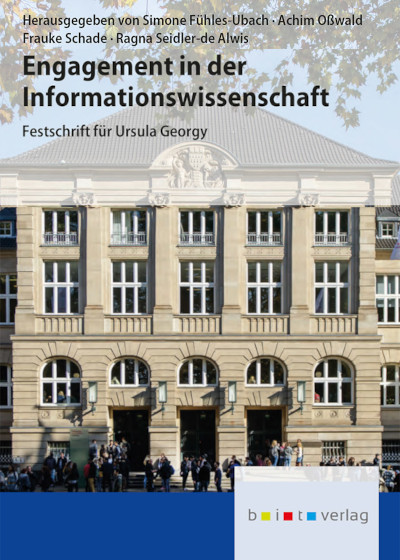 WEITERE NEWS
WEITERE NEWS
- Dublin-based nonprofit lays off 80 central Ohio workers, cites AI and federal cuts
- Infotermin berufsbegleitender MBA Bildungs- und Wissenschaftsmanagement
- Hymne auf Babylon entdeckt
- Karl Schlögel erhält den Friedenspreis des Deutschen Buchhandels 2025
- Was KI-Trainigsmodelle dürfen und was nicht
- KEK-Tagung „Originale erhalten – 10 Jahre Bundesweite Handlungsempfehlungen“
- FAIRagro Search Hub ist online
- Digitalisierungsstrategie konsequent fortgesetzt: Bayerische Staatsbibliothek stellt fünfmillionstes Werk online

Aktuelles aus
L
ibrary
Essentials
In der Ausgabe
- Neue Anforderungen an Führungskompetenz in wissenschaftlichen Bibliotheken
- KI in der Katalogisierung: Drei Chatbots auf dem Prüfstand
- Mehr als nur eine ID: Warum Forscher ORCID nutzen und warum nicht
- Anxiety in der Hochschullehre: zögerlicher Einsatz von ChatGPT
- Smart Reading in Bibliotheken: Aktive Beteiligung von Leser:innen
- Kinder im digitalen Zeitalter:
OECD-Bericht zeigt Handlungsbedarf für Politik und Bildungseinrichtungen - Bibliotheken und ihre Rolle beim Klimaschutz
- Initiative für eine unabhängige Infrastruktur biomedizinischer Literatur –
ZB MED entwickelt PubMed Alternative - Leiterin der Library Of Congress entlassen
- Data Citations –
Datenauswertung in Bibliotheken - Unternehmen investieren gezielt
in künstliche Intelligenz - Springer Nature spendet KI-Werkzeug „Geppetto“ an die Verlagsbranche zur Bekämpfung betrügerischer Einreichungen
- Die San José State University
setzt auf Ihren ersten KI-Bibliothekar

fachbuchjournal























































